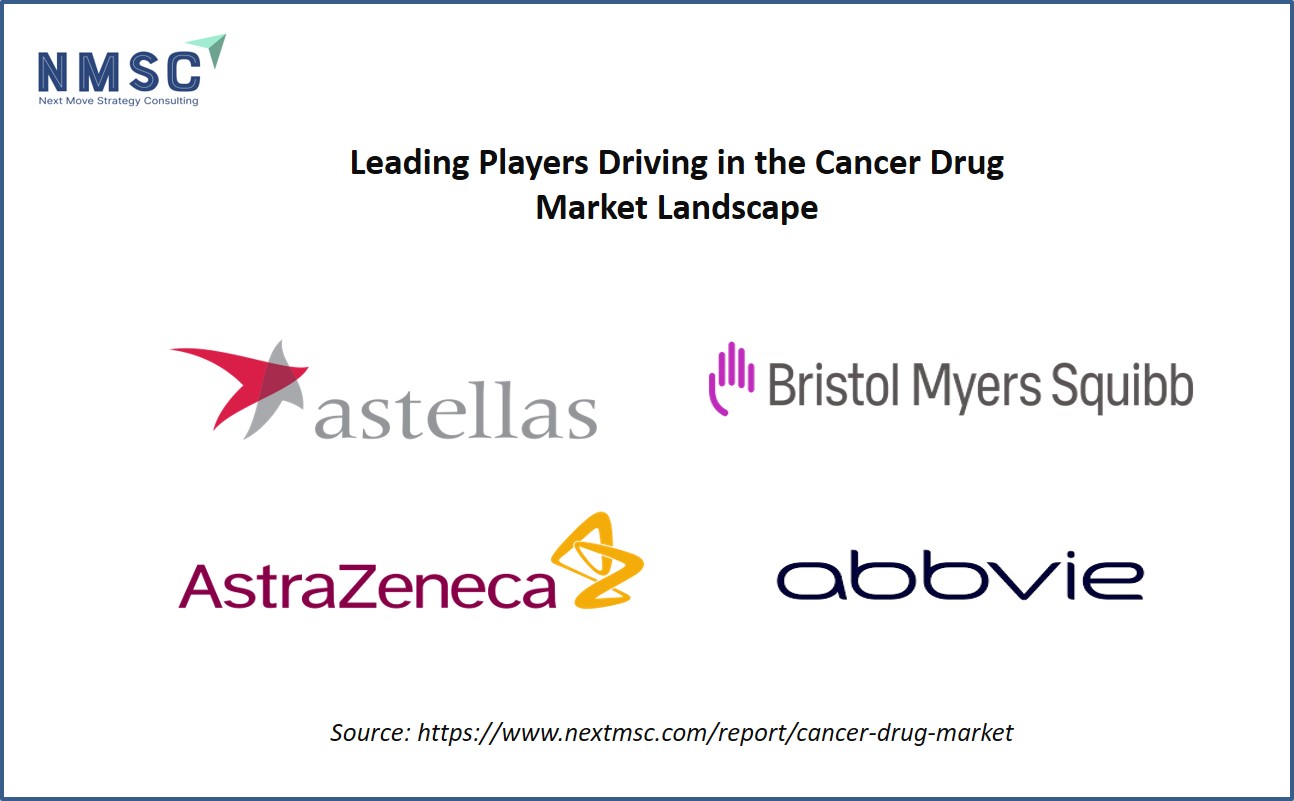Breakthroughs in Cancer Drug Development: A Global Perspective
Published: 2025-09-17

Cancer remains one of the most formidable challenges in modern medicine, but recent advancements in drug development are offering new hope. From Japan's strategic clinical trials in India to immunotherapy breakthroughs in the UK and innovative fungal-derived drugs in the US, 2025 has been a pivotal year for cancer research.
Japan’s Takeda Targets India for Faster Drug Launches
Takeda Pharmaceutical, a leading Japanese drugmaker, is exploring India as a hub for global clinical trials to accelerate the launch of innovative drugs, including cancer therapies. India’s diverse patient pools, cost-effective research environment, and expanding hospital network make it an attractive destination.
The global Cancer Drug Market size is predicted to reach USD 215.11 billion by 2030, with a CAGR of 5.9%, from 2020-2030.
According to Annapurna Das, General Manager of Takeda’s India operations, the company views India as a strategic growth market, with plans to integrate its research ecosystem into Takeda’s global pipeline.
Why India?
-
Diverse Patient Population: India’s large and genetically varied population provides a robust sample for clinical trials, ensuring comprehensive data.
-
Cost Efficiency: Conducting trials in India is often more affordable than in Western countries, allowing faster scaling of research.
-
Growing Infrastructure: India’s hospital network is expanding rapidly, supporting advanced clinical research.
-
Market Potential: The Indian clinical trials market is projected to exceed $2 billion by 2030, signaling strong growth. Takeda is also investing in partnerships with Indian academia, healthcare providers, and technology firms to foster innovation. The company has established an innovation center in Bengaluru, employing over 500 professionals in AI, data science, and engineering, with plans to expand to 750. Additionally, Takeda aims to launch a lung cancer drug in India this year and is awaiting approval for a dengue vaccine developed with local vaccine maker Biological E.
Takeda’s strategic focus on India leverages the country’s unique advantages to speed up drug development, promising faster access to innovative treatments, including oncology and dengue therapies, for Indian patients and beyond.
Immunotherapy Breakthrough: Doubling Cancer-Free Survival
In a landmark clinical trial named Keynote, the immunotherapy drug pembrolizumab has shown remarkable results for patients with advanced head and neck cancer. Led by experts from the Institute of Cancer Research in London, the trial demonstrated that administering pembrolizumab before and after surgery significantly extends cancer-free survival.
How Pembrolizumab Works
Pembrolizumab is an immunotherapy drug that primes the body’s immune system to recognize and attack cancer cells. Unlike traditional treatments, it is given both before surgery to train the immune system and for up to a year afterward to maintain this response. The trial, involving 192 hospitals across 24 countries, compared outcomes for more than 350 patients receiving pembrolizumab with a similar number receiving standard care.
-
Key Results:
-
Patients on pembrolizumab remained cancer-free for an average of five years, compared to 2.5 years for those on standard care.
-
After three years, pembrolizumab reduced the risk of cancer recurrence by 10%.
-
-
Patient Impact: Laura Marston, a 45-year-old participant diagnosed with advanced tongue cancer in 2019, credits pembrolizumab with giving her life back. Six years post-diagnosis, she is thriving despite a dire initial prognosis. The trial’s success has prompted calls for pembrolizumab to be made available on the UK’s National Health Service (NHS), potentially transforming treatment for the 12,800 new head and neck cancer cases diagnosed annually in the UK.
Pembrolizumab, tested in the Keynote trial, represents a significant advancement in treating head and neck cancer, doubling cancer-free survival and offering hope for improved patient outcomes.
Who Are the Leading Players in the Global Cancer Drug Market?
The cancer drug market is intensely competitive, with several prominent companies driving innovation and growth. Key players include Astellas Pharma Inc., AbbVie Inc., Bristol-Myers Squibb Company, AstraZeneca PLC, F. Hoffmann-La Roche Ltd., Celgene Corporation, Merck & Co., Inc., Johnson & Johnson (Janssen Global Services, LLC), Pfizer Inc., and Novartis AG, among others.
US Scientists Turn Dangerous Fungus into Cancer-Fighting Drug
Researchers at the University of Pennsylvania have developed a novel cancer drug derived from Aspergillus flavus, a toxic fungus known for contaminating crops. Named aspergillomycin, this compound has shown promise in killing leukemia cells with efficacy comparable to FDA-approved drugs.
The Science Behind Aspergillomycin
Aspergillomycin is a type of RiPP (ribosomally synthesized and post-translationally modified peptide). Scientists isolated molecules from the fungus, modified them, and tested their effects on leukemia cells. The results were striking:
-
Selective Action: Aspergillomycin effectively targets leukemia cells while sparing breast, liver, and lung cancer cells, as well as various bacteria and fungi, indicating minimal side effects.
-
Future Potential: The compound is set to undergo animal testing, with hopes for human trials in the coming years.
Lead researcher Sheryl Gao emphasized the potential for more fungus-derived drugs, noting that fungi have historically provided transformative medicines like penicillin. This discovery could pave the way for new cancer therapies derived from natural sources.
The development of aspergillomycin highlights the potential of nature-inspired drugs, offering a targeted approach to leukemia treatment with minimal side effects.
Comparing Global Cancer Drug Innovations
|
Region |
Key Drug/Approach |
Target Cancer |
Key Benefit |
|
Japan/India |
Multiple drugs (e.g.,lung cancer drug,dengue vaccine) |
Oncology, others |
Faster drug launches |
|
UK/Global |
Immunotherapy(pembrolizumab) |
Head and neck |
Doubles cancer-freesurvival |
|
US |
Fungus-derived drug |
Leukemia |
Selective cancer cell targeting |
These innovations reflect a global push toward faster, more effective, and targeted cancer treatments, each leveraging unique regional strengths and scientific approaches.
Next Steps: How to Stay Informed and Engaged
The rapid advancements in cancer drug development are exciting, but staying informed and proactive is key for patients, caregivers, and advocates. Here are actionable steps to take:
-
Follow Clinical Trial Updates: Check reputable sources like clinicaltrials.gov for updates on trials involving pembrolizumab, aspergillomycin, or Takeda’s pipeline.
-
Consult Healthcare Providers: Discuss immunotherapy options like pembrolizumab with oncologists, especially for head and neck cancer patients.
-
Support Research Advocacy: Engage with organizations like the American Society of Clinical Oncology (ASCO) to advocate for expanded access to innovative treatments.
-
Monitor Regulatory Approvals: Keep an eye on approvals from regulatory bodies like India’s drug regulator or the UK’s NHS for new cancer drugs.
-
Explore Patient Stories: Read personal accounts, like Laura Marston’s, to understand the real-world impact of these treatments.
Final Thoughts
The landscape of cancer treatment is evolving rapidly, with global efforts bringing us closer to more effective and accessible therapies. By staying informed and engaged, we can all contribute to a future where cancer is no longer a devastating diagnosis.
About the Author
 Nitrishna Sonowal is a skilled SEO Executive and Content Writer with over 3 years of experience in the digital marketing industry. With a deep understanding of the ever-evolving digital landscape, she blends analytical insights with creative storytelling to deliver impactful digital solutions. She creates content that resonates with both clients and readers alike. Outside of work, she enjoys dancing, baking, and traveling to new places.
Nitrishna Sonowal is a skilled SEO Executive and Content Writer with over 3 years of experience in the digital marketing industry. With a deep understanding of the ever-evolving digital landscape, she blends analytical insights with creative storytelling to deliver impactful digital solutions. She creates content that resonates with both clients and readers alike. Outside of work, she enjoys dancing, baking, and traveling to new places.
About the Reviewer
 Sanyukta Deb is a skilled Content Writer and Digital Marketing Team Leader, specializing in online visibility strategies and data-driven campaigns. She excels at creating audience-focused content that boosts brand presence and engagement, while also pursuing creative projects and design interests.
Sanyukta Deb is a skilled Content Writer and Digital Marketing Team Leader, specializing in online visibility strategies and data-driven campaigns. She excels at creating audience-focused content that boosts brand presence and engagement, while also pursuing creative projects and design interests.

















Add Comment